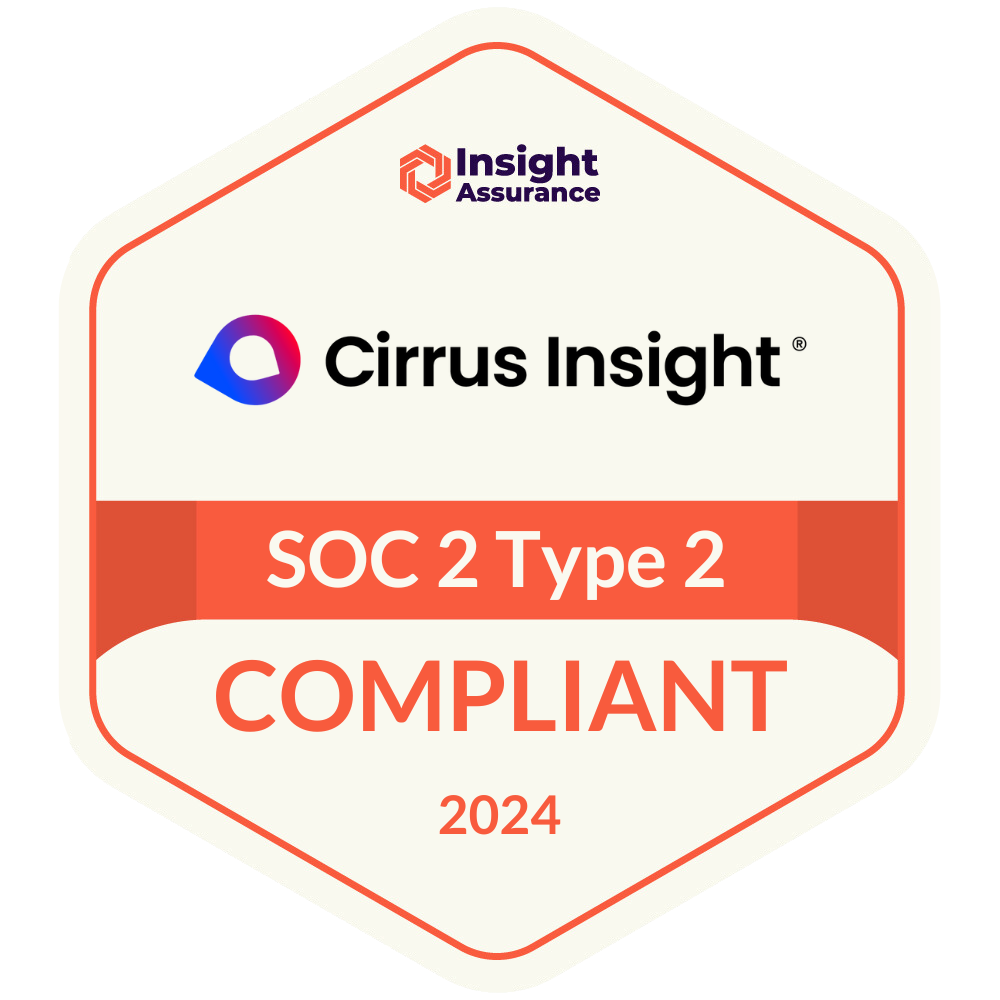- Solutions
-
Products
-
Resources
Sales Automation Tools | Cirrus Insight by Kristi Campbell View all Blog Posts >Get the App, Get the Sidebar, & Get Your Trial Going HereUnleash limitless growth opportunities by partnering with Cirrus Insight.
- Pricing
Sales Behaviors of Top-Tier Sales Reps and How to Scale Success Across Your Team
What makes your top sales performers different? It's not luck or natural talent that sets them apart — it's their consistent execution of winning behaviors, day after day.
As a sales leader, your challenge is to identify these winning habits and create systems that help your entire team adopt them.
Another important part of the picture is that today's top performers also know how to use technology to eliminate administrative work so they can focus their energy on high-value sales activities.
In this article, we'll examine the key behaviors that separate top performers from the rest of the pack. We'll explore how sales leaders can spot these winning behaviors, create systems to teach them, and use technology to scale successful practices across their organizations.
The Top 5 Sales Behaviors (and How to Implement Them on Your Team)
To understand what drives exceptional sales performance, we looked to the experts: top-performing sales representatives who consistently exceed their targets.
Through a detailed survey, we asked these standout performers to identify their most effective behaviors and share examples of how they put them into practice. Here’s what they recommended.
1. Strategic technology
Top sales reps understand that time spent on administrative tasks is time not spent on selling — and that’s where strategic technology comes in.
A smart sales leader can boost their team’s performance by selecting tools and platforms that remove administrative barriers and free up more time for building relationships and closing deals.
In our survey, we found that top performers particularly value tools that help them:
- Track client interactions automatically.
- Schedule meetings without back-and-forth emails.
- Maintain accurate CRM data.
- Research prospects efficiently.
- Automate sales campaign personalization.
For example, the highest-achieving reps emphasize the value of automating data entry into their CRM to maintain accurate records without all the manual effort. They also save hours each week by using automated meeting scheduling tools.
Successful reps stay up-to-date on product updates and technical requirements. They combine this knowledge with AI-powered meeting research tools to prepare for more meaningful conversations with prospects.
2. Building strong relationships
Top sales performers — in both B2B and B2C environments — consistently place relationship building at the core of their success. They establish trust through detailed preparation and genuine attention to each prospect's business challenges.
Several of our top reps emphasize connecting on a personal level while maintaining professional boundaries. Several mentioned finding common ground with potential customers through shared interests or industry experiences.
The most successful salespeople take time to understand their prospects' complete business context before presenting solutions. They do their homework by studying industry trends, competitors, and how their prospects actually work day-to-day. This preparation empowers them to ask better questions and suggest solutions that solve real problems.
One top performer showed this approach in action with a major retail corporation. The prospect came to the table with a minimal budget, thinking they needed only basic sync capabilities. Rather than accepting this initial request, our rep asked strategic questions about the company's upcoming initiatives. Their conversations revealed the prospect's complete business context and future plans, and uncovered much broader needs. The rep turned this deeper understanding into a comprehensive solution. She won the business and even opened doors to additional departments across the organization.
3. Skillful communication
Clear communication begins before the first client interaction. High-performing reps craft concise, focused emails that address specific prospect needs. They customize their language and technical depth based on their audience — whether they're speaking with IT professionals about integration requirements or explaining ROI to financial decision-makers.
These top performers excel at asking targeted questions that guide meaningful discussions. Rather than following rigid scripts, they create flexible conversation frameworks that help prospects articulate their challenges.
When prospects express interest in one solution, successful reps probe deeper to uncover additional needs. For example, a basic requirement might reveal opportunities for more comprehensive workflow improvements. This strategic communication approach turns surface-level product discussions into substantive conversations.
4. Active listening
Active listening distinguishes average sales conversations from exceptional ones. Our top performers consistently wait three to five seconds after a prospect finishes speaking before responding. This deliberate pause serves two purposes: It ensures the prospect has completely expressed their thoughts, and it gives the rep time to process and formulate a thoughtful response.
Top sales representatives also take detailed notes during client conversations and use them to uncover underlying business needs.
For example, when one prospect mentioned they needed a basic appointment scheduling app, careful listening revealed deeper challenges with their entire meeting workflow.
Through patient questioning and attentive listening, the rep learned the prospect actually needed a comprehensive solution for their team. Instead of rushing to present solutions, successful reps ask follow-up questions like "Tell me more about that process" or "How does that affect your team's productivity?"
These questions often reveal that prospects need different — and sometimes more sophisticated — solutions than they initially thought.
5. Coaching and mentoring
Sales leaders should focus on having junior reps shadow top performers, documenting every detail of their interactions — even seemingly minor ones.
For example, sales leader Sarah takes a systematic approach with her team. She first identifies the behaviors behind her top performer Rachel's success - particularly her discovery call structure.
Sarah then pairs her new reps, Mark and David, with Rachel to document her techniques — from her strategic use of conversation pauses to her methods for uncovering business challenges. After observation, Mark and David practice these techniques in role-play sessions before applying them to real prospect conversations.
In our interviews, several top performers advised practicing discovery calls with experienced peers who can challenge new reps with unexpected questions. This preparation helps new reps develop confidence in real client conversations.
The learning process is also ongoing. Successful reps recommend monitoring product and marketing channels, attending webinars, and maintaining strong relationships with colleagues across departments for continuous learning. They emphasize staying humble, and they acknowledge that even experienced reps continue to learn throughout their careers as new challenges emerge.
Build a Team of Top Performers
Success in sales isn't mysterious — it's methodical. Top performers demonstrate consistent behaviors that drive their results. They listen more than they speak, prepare thoroughly, adapt their approach based on customer needs, and use technology strategically so they can focus on high-value activities.
Sales leaders who identify and teach these behaviors can elevate their entire team's performance.
The path to sales excellence is reducing administrative workload, so your reps can focus more on applying the behaviors of top performers to improve results.
Ready to start? Automated Salesforce syncing eliminates admin burdens so your reps can focus on having the conversations that matter. Equip your team with the right tools, and watch these winning behaviors become second nature in your organization.

.png?width=1268&height=1772&name=Sidebar-C%20(1).png)
.png?width=700&height=534&name=meetingai-Sidebar%20(8).png)
.png?width=700&height=549&name=meetingai%20-%20chat-summarize%20(1).png)




